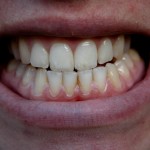
Probiotics are live microorganisms that are considered to health benefits on the host. Potential benefits in the oral cavity include improving the biofilm quality and modulating the host’s inflammatory response. Recently trials have investigated the use of probiotics for the treatment of plaque-induced gingivitis with mixed findings.
The aim of this review was to evaluate the effect of probiotics on gingival inflammation and oral microbiota in patients suffering from plaque-induced gingivitis.
Methods
Searches were conducted in the Cochrane Central Register of Controlled Trials (CENTRAL), Embase, PubMed and System for Information on Grey Literature in Europe (SIGLE) databases with no language restrictions. Randomised controlled trials (RCTs) of probiotics for the treatment of plaque-induced gingivitis were considered. Two reviewers independently selected studies extracted data and assesses risk of bias using the Cochrane domains-based approach. Outcomes included Gingival Index (GI), Plaque Index (PI), bleeding on probing (BOP), gingival crevicular fluid (GCF) volume, the concentration of IL-1β in GCF and specific bacterial counts. Differences were expressed as weighted mean differences (WMD) and 95% of confidence interval (95% CI).
Results
- 11 RCTs involving a total of 554 patients (276 Test, 278 Control) were included.
- 2 studies used beverages as the delivery agent and 9 studies lozenges.
- Probiotics used included Lactobacillus rhamnosus, Bifidobacterium, Lactobacillus reuteri, Bacillus coagulans, Lactobacillus plantarum, Pediococcus acidilactici, Lactobacillus brevis and Lactobacillus casei.
- Follow-up periods ranged from 14 to 56 days.
- 4 studies were considered to be at low risk of bias and 7 at high risk of bias.
- Meta-analysis showed that no differences in outcomes between probiotic and control groups.
| Outcome | No. of studies | WMD (95%CI) |
| Gingival index (GI) | 8 | −0.15 (−0.31 to 0.00) |
| Plaque index (PI) | 8 | 0.01 (−0.06 to 0.07) |
| Bleeding on probing (BOP) | 5 | 0.07 (−0.04 to 0.18) |
| Gingival crevicular fluid (GCF) volume | 3 | −0.04 (−0.09 to 0.01) |
| Concentration of IL-1β in GCF | 3 | −7.32 (−51.50 to 36.86) |
| Aggregatibacter actinomycetemcomitans count | 2 | 0.01 (−0.55 to 0.58) |
| Porphyromonas gingivalis count | 3 | −0.29 (−0.75 to 0.17) |
| Prevotella intermedia count | 2 | 0.15 (−0.80 to 0.50) |
| Fusobacterium nucleatum count | 3 | −0.04 (−0.37 to 0.28) |
Conclusions
The authors concluded: –
No clear evidence was found in the literature review to indicate that oral probiotics have a positive effect on gingival inflammation and oral microecological environment of patients with plaque-induced gingivitis. The efficacy of probiotics as a monotherapy for plaque- induced gingivitis is uncertain, and further well-designed RCTs on this topic are needed to draw definitive conclusions.
Comments
The reviewers have searched a good range of databases and followed a typical systematic review methodology. 11 RCT were identified with the number of participants ranging from 18 to 109 a majority of which (7) were at high risk of bias. The findings indicated that there were no differences between the probiotic and control groups for any of the outcomes reported. However, many of these were only reported in a small number of the included studies. We recently reported on a review of probiotics for the management of gingivitis by Akram et al (Dental Elf – 18th Feb 2020) that review included 10 RCTs concluding,
the outcomes of this review show weak evidence to support the use of probiotics in mildly reducing inflammatory periodontal parameters in gingivitis.
This new review includes 11 RCTs only 5 of which are common to both reviews with one further study being published since the initial review and finds no clear evidence that probiotics had a positive effect. Both reviews suffer from similar problems in that the majority of the available studies are at high risk of bias, are small and of short duration.
Links
Primary Paper
Liu J, Liu Z, Huang J, Tao R. Effect of probiotics on gingival inflammation and oral microbiota: A meta-analysis. Oral Dis. 2021 Mar 27. doi: 10.1111/odi.13861. Epub ahead of print. PMID: 33772970.
Other references
Dental Elf – 18th Feb 2020
Dental Elf – 28th Nov 2018
